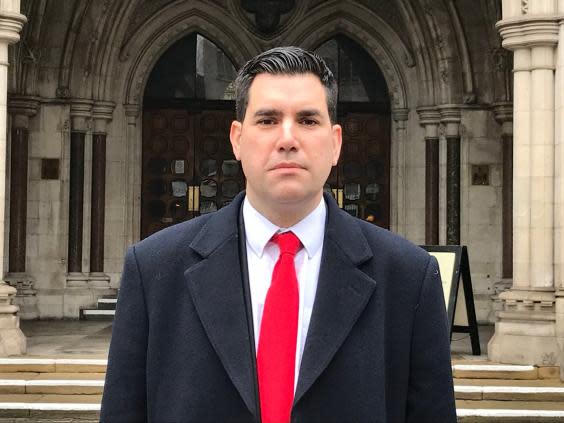Thousands of offenders could avoid jail under Labour plans to halt most short prison sentences

Thousands of offenders could avoid jail under new Labour plans to halt the use of most short prison sentences.
Shadow justice secretary Richard Burgon will use his keynote speech to the party’s annual conference in Brighton on Sunday to announce plans for legislation introducing a presumption against jail terms of six months or less for non-violent and non-sexual offences.
Speaking to The Independent, Mr Burgon dismissed Boris Johnson’s promise to spend £2.5bn on 10,000 new prison places as “chest-beating” that could make crime worse by encouraging reoffending, which already costs the country £18bn a year.
He cited Ministry of Justice figures which suggested that as many as 32,000 crimes a year could be avoided by handing out effective non-custodial sentences rather than short spells in jail for less serious offences.
“When you look at the figures, one in three people who are given custodial sentences are sentenced to less than three months in prison and half to less than six months,” said Mr Burgon.
“In the female estate it’s even worse than that, with half of women receiving three month or less and two-thirds six months or less. And almost half of these women on short sentences are in jail for shoplifting.
“We don’t think that prison is the best place for them. People whose lives are often already chaotic have them further disrupted by these super-short prison sentences. They lose their homes and their jobs, relationships break down and communication between women and their children is undermined.
“All of these things make it more likely that they will reoffend. That’s what the Ministry of Justice’s own evidence shows.”
In place of a short stay behind bars, offenders whose crimes do not involve violence or sexual misconduct could be ordered to work on projects selected by local communities or be required to undertake programmes to tackle their alcohol or drug dependency or treatment for mental health problems. Labour is already drawing up plans to invest in problem-solving courts to tackle addiction and other problems lying behind crime.

Mr Burgon dismissed the idea that sentences in the community would offer an “easy ride” to offenders.
“We don’t accept that proper non-custodial sentences are a soft touch,” he said. “These are not going to be easy programmes, they are going to be challenging.”
He cited a scheme in Scotland where offenders worked alongside local people restoring an overgrown graveyard.
“What was heartening was that some of the offenders stayed on to tend the graveyard after their order was completed,” he said. “You are integrating people into the community networks and you are challenging the perceptions of people in the community about offenders.”
Labour would use some of the £2.5bn saved by scrapping Mr Johnson’s prison-building programme on funding women’s centres offering help in addressing the factors which drive some women into crime, he said.
And another £15m would go towards filling gaps in the government’s female offenders strategy.
Labour would return probation to the public sector to reverse a crisis in magistrates’ confidence in community-based sentencing following the decision by former justice secretary Chris Grayling to bring private companies into providing the service.
“I believe that what matters is what works,” said Mr Burgon. “Figures I uncovered showed that half of all women sent to prison were homeless. That’s up 80 per cent over four years.
“When you’re sending homeless people to prison and people engaged in shoplifting to prison, you’ve got to ask yourself the question: should the government’s response be to build more and more prisons for these people?
“Prison is often the worst place for people with mental health problems, alcohol and drug addictions. It’s only by turning these problems around that you turn lives around and reduce reoffending.”
Mr Burgon declined to say what reduction he expected the policy to deliver to the 83,000 prison population in England and Wales.
“This isn’t being done for the purpose of getting the prison population down to some arbitrary figure,” he said. “This is about trying to look at what works and what reduces the number of victims of crime.
“I don’t think that chest-beating about reannouncing another 10,000 prison places is going to help communities that are victims of crime. Those 10,000 prison places have been announced by five justice secretaries and three prime ministers anyway.
“It’s disappointing that the government isn’t looking at the evidence its own ministry has uncovered. It seems they are chasing headlines in the right-wing press rather than looking at what works for victims of crime.”
Read more
Labour to consider ‘modern’ equalities revisions to Clause IV
Labour vows to regulate ‘lawless’ facial recognition technology
Labour’s John McDonnell backs campaign to abolish private schools
Labour bosses ‘blocking vote on closing all detention centres’

 Yahoo News
Yahoo News 
